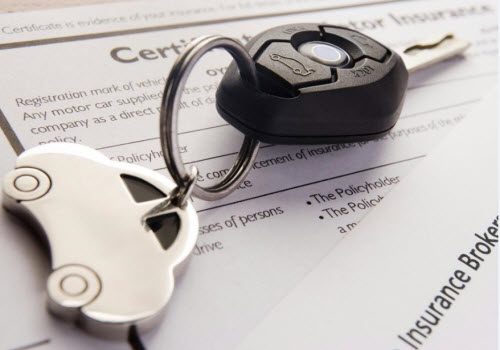Unless you just won the lottery, you’re going to have to finance that new car. That means going to a bank or other financial institution and taking out a loan. How’s your credit rating? If you don’t know, find out before looking for a car loan.
To save time and aggravation, do your homework before going to the bank, and get your loan approved before trying to buy that new car. You don’t want to be sitting in the showroom, ready to drive home that brand new vehicle, only to find out that the bank turned down your loan. Plus, having your financing already in place gives you more leverage when you’re haggling for the best deal.
How much is my old car worth?
If you’re planning to trade in your old car, you’ll want to get an idea of how much the dealer is likely to allow you for it. There are several places online where you can look up the Kelley Blue Book value on your car as well as how much it’s likely to bring as a trade-in.
If your car is an older or not-so-popular model but it’s in great shape, you might do better financially by selling it for cash on Craigslist.
What optional equipment do I want?
What you’ll use, but not every little gee-gaw that an automaker can think of to stick on a car. Most new cars come equipped with the most popular options like a standard AM/FM radio, power seats, door locks and windows, plus you’ll probably want power steering and brakes, air conditioning and a navigation system. Manual transmission vs. automatic is your call, but do be aware there are new transmissions that combine features of each. Likewise for appearance and performance options—check out the choices and prices.
You’ll probably want a sound system of some kind, but unless you’re a record producer or rock star, do you really need that super-expensive stereo with 16 speakers and satellite radio? On the other hand, a car stereo that lets you plug in your iPod lets your music collection do double duty.
If you frequently park on the street, an alarm system is definitely a good idea. It’s likely to be cheaper than the deductible if your car gets stolen.
Where should I buy a new car?
Once you’ve zeroed in on what kind of car you want, it’s time to do some serious shopping. Check out the new-car dealers in your area that sell your model and scope out the stock on hand. Talk to the salesmen and get a feel for what it will be like to deal with them.
If you are the type of person who doesn't want to do your negotiating in person there are other options available for you. Keep reading and see what choices you have.
When contacting dealers online and comparing offers, be sure that all pertinent fees are included in the final price. Get an itemized quote by email on every car that you’re considering. Be prepared to haggle with dealers to get the best possible deal!
Buying a used car
Not all used cars are lemons. There are pre-owned cars out there with plenty of good years left in them, but the trick is to weed out the bad ones. Here are five questions to ask when shopping for a good used car.
What make and model do I want?
Are you looking for reliable transportation for a long commute, but can’t afford a new car? Are you looking for a car for your teen, who’s still learning to drive? Do you need lots of space or good gas mileage?
If you’re undecided, subscribe to Consumer Reports online and check out the stats on the vehicles you’re considering. When I was buying a used car, I decided to shop for a Honda Civic because CR gave it superior ratings for reliability.
If you looking for a like-new car without the new car sticker price, consider a certified pre-owned auto from a dealer. A newer model may come with a warranty.
What is the VIN?
When you sit down to Craigslist and start calling the owners of cars that pique your interest, you’ll naturally want to know facts not mentioned in the ad, but how can you be sure the owner’s not lying? There’s no foolproof truth serum for this, but you can cut to the chase by subscribing to Carfax or AutoCheck. For about $50 a month, you can run the VIN numbers of cars you’re interested in and get an unlimited number of vehicle reports covering such subjects as accidents, mileage, damage and previous owners.
If the owner says the car has never been wrecked, but a check on its VIN shows structural damage and/or a salvage title, you know they’re lying—and you definitely don’t want to buy a car from them. On the other hand, you may find that the car has had one owner who’s kept track of all maintenance on the vehicle, making it a good bet to take for a test drive.
Can my mechanic take a look at this car?
If you’ve weeded out the crappy cars and shady owners, you’ve hopefully found a vehicle or two that you’d actually consider buying. After you’ve given the car a road test, it’s time to consult an expert—your regular mechanic. Ask him how much he charges to go over the car and give you his opinion.
The last time I bought a used car, the owner and I took it to the garage of my guy Steve, who spent the better part of an hour going over the vehicle. Finally, he pronounced it in good shape, except that the stereo didn’t work. I could live with that, so I bought the car.
Whatever you buy, do some research first so you can make a smart choice!
| Written on 7/7/2013 by Linda Cauthen. |








